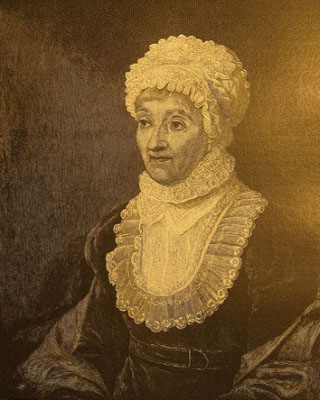
Image: Lucretia Herschel, an astronomer and mathematician who made significant contributions to the astronomical research of her time.
Lucretia Herschel is best known for her crucial role as a supporter and collaborator of her brother, the famous astronomer William Herschel. She also developed her own research, particularly in the fields of astronomy and mathematics.
Although often overshadowed by her brother, Lucretia played a fundamental role in organizing and analyzing astronomical observations. She also assisted in the construction of William's telescopes, contributing to his major discoveries.
Lucretia Herschel was an unwavering support for her brother in his astronomical work. She helped him compile star catalogs and took charge of much of the organization of his observatory in Slough. She also assisted William with his mathematical calculations and astronomical observations.
Thanks to her hard work and scientific rigor, she allowed William Herschel to focus on his groundbreaking discoveries, such as the discovery of the planet Uranus.
In addition to her role supporting her brother, Lucretia conducted research in geometry and trigonometry, particularly aimed at improving the accuracy of astronomical observations. She was also involved in organizing sky observations and creating star catalogs.
Lucretia was an accomplished mathematician, and although her work was largely ignored by her contemporaries, she made significant contributions to the astronomy of her time.
Today, Lucretia Herschel's legacy remains largely underestimated, despite her notable contributions. She played an essential role in laying the foundations of modern astronomy, particularly through her involvement in her brother's work, which revolutionized our understanding of the universe.
Lucretia is an example of a female scientist who worked in the shadows but whose contributions were crucial to the development of science.
Although her writings are rare, Lucretia left a lasting impact in the field of science, primarily through her contribution to the astronomical and mathematical research of her brother. Her work had a considerable influence on the scientific developments of the 19th century.
1997 © Astronoo.com − Astronomy, Astrophysics, Evolution and Ecology.
"The data available on this site may be used provided that the source is duly acknowledged."
How Google uses data
Legal mentions
English Sitemap − Full Sitemap
Contact the author